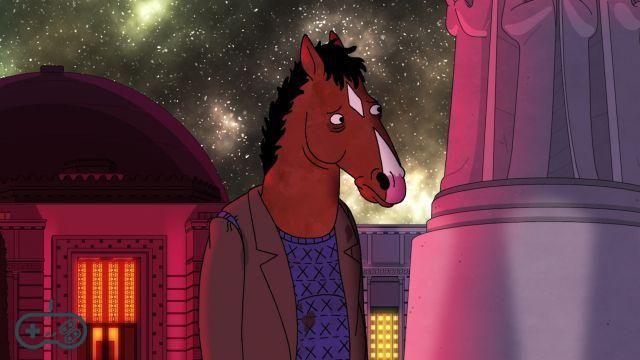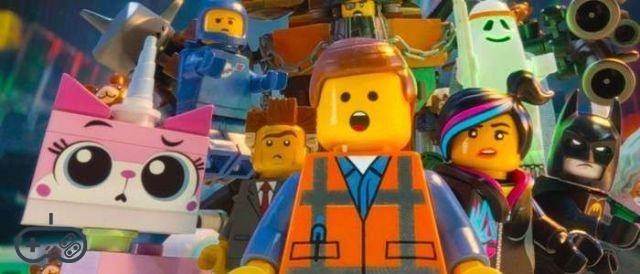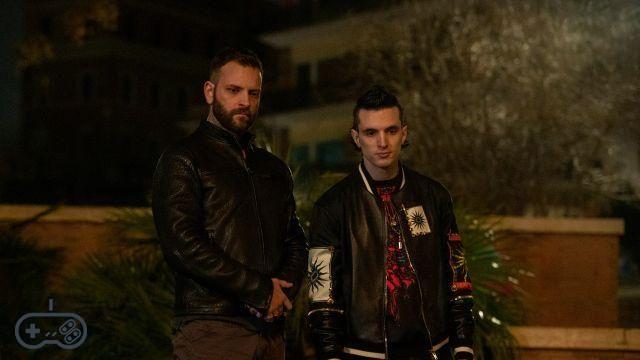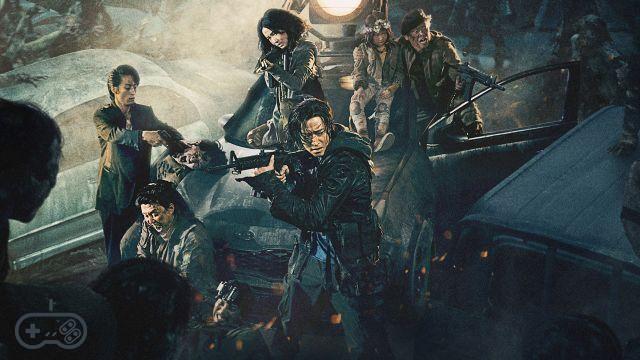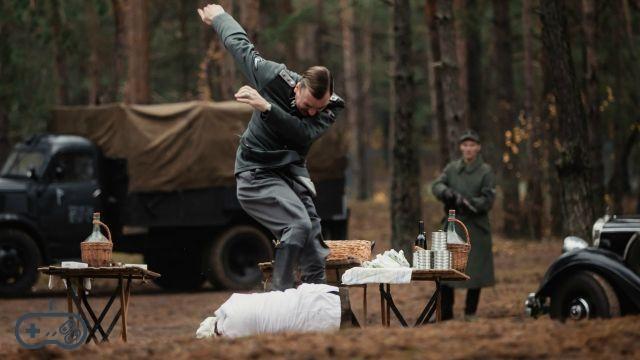
It is never easy to talk about the atrocities resulting fromHolocaust and the horror machine conceived and set in motion by the Nazis, life in concentration camps and the systematic dehumanization of millions of victims. Nevertheless, telling what happened is one need today as always, to educate oneself and educate to diversity, hospitality and, above all, humanity. The Ukrainian director Vadim Perelman he set out to highlight that we are all human beings in his latest film Persian lessons, inspired by a true story, selected at 70th Berlinale and coming out in theaters on 5st November.
When despair leads to incredible results
We are in occupied France in 1942, where thousands of Jews were captured and deported by the SS. On a chariot, the young man Gilles exchanges his sandwich (perhaps out of opportunism, perhaps out of sincere curiosity) with a ancient book written in Farsi (the language spoken in Persia) and dedicated to such Reza Joom. This very book allows Gilles to save his life shortly after, when the guards avoid shooting him because the young man says he is Persian and not Jewish. However, the clemency of the guards has very little noble: in fact, Gilles is immediately brought by theNazi officer Koch, the head of the kitchens of a concentration camp with the desire to learn Farsi to be able to move to Tehran and open a restaurant after the end of the war. Poor Gilles, who takes the name of that unknown Reza to whom the book was dedicated, is faced with a fatal choice: to surrender to the Nazis or to continue the farce and pretend to be Persian to teach him Farsi while not knowing him?
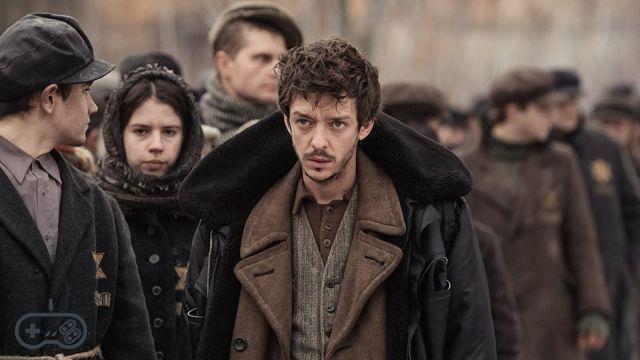 In order to save himself, Reza pretends to know Farsi perfectly, teaching it day after day to Koch, who memorizes an increasing number of words that actually have very little of Persian. As the days progress, Reza begins to have serious difficulties coming up with new words for the lessons, which prompts him to find one. ploy to make your work easier: use i names of the deportees in the field to create the lexicon of a language that does not exist. Thus, Lessons of Persian, inspired by the telling of a true story, Invention of a language (Erfindung einer Sprache) by Wolfgang Kohlhaase, links the theme of life in concentration camps to that of the memory. Although the deportees were nothing more than a number for the Nazi registers, for Gilles / Reza the names of all the prisoners continue to resonate in the words of the language he invented, associating each word with the first and last name of a victim. In addition, this invented Persian becomes the language of the unspeakable, thanks to which Koch reveals emotions and aspirations that a Nazi officer cannot express. As pointed out by the director in an interview, when talking about "Farsi" with Reza, Koch does not present himself as Captain, but as Klaus, breaking down the distance between military and prisoner in the freedom of a language that allows him to forget about taboos.
In order to save himself, Reza pretends to know Farsi perfectly, teaching it day after day to Koch, who memorizes an increasing number of words that actually have very little of Persian. As the days progress, Reza begins to have serious difficulties coming up with new words for the lessons, which prompts him to find one. ploy to make your work easier: use i names of the deportees in the field to create the lexicon of a language that does not exist. Thus, Lessons of Persian, inspired by the telling of a true story, Invention of a language (Erfindung einer Sprache) by Wolfgang Kohlhaase, links the theme of life in concentration camps to that of the memory. Although the deportees were nothing more than a number for the Nazi registers, for Gilles / Reza the names of all the prisoners continue to resonate in the words of the language he invented, associating each word with the first and last name of a victim. In addition, this invented Persian becomes the language of the unspeakable, thanks to which Koch reveals emotions and aspirations that a Nazi officer cannot express. As pointed out by the director in an interview, when talking about "Farsi" with Reza, Koch does not present himself as Captain, but as Klaus, breaking down the distance between military and prisoner in the freedom of a language that allows him to forget about taboos.
Fictitious conversations
THElinguistic aspect of the film is definitely commendable: Seeing Gilles and Koch conversing in a fictional Persian with ease is both strange and touching, while the rest of the film alternates between French and German. For this reason, Lessons of Persian can be difficult to follow, but it is also true that the dubbing would not make the most of the authenticity of the atmosphere of the feature film. The performance of the protagonist, played by Nahuel Pérez Biscayart (Sick, Sick, Sick, We meet again up there, 120 beats per minute) is certainly the one that stands out the most: between a multiplicity of languages spoken, and a role full of conflict and drama, Biscayart is the perfect sounding board of the emotions communicated in Persian Lessons.
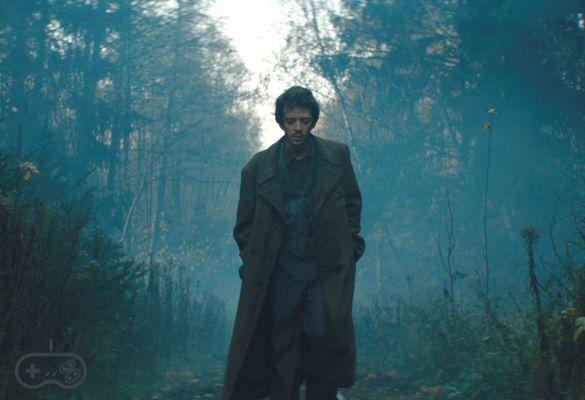 Supported by a wonderful photography full of dark notes, lessons of Persian, however it presents some shortage from a narrative point of view. Despite a very inclined direction of the delay and a rather slow storytelling, the film it starts too abruptly, leaving very little time for the viewer to fully understand the setting in which you are and, more importantly, to get in tune with the protagonist. In addition, the secondary plot of the feature film, which tells of intrigues and jealousies between Nazi officers, fails to be convincing despite Perelman's premises.
Supported by a wonderful photography full of dark notes, lessons of Persian, however it presents some shortage from a narrative point of view. Despite a very inclined direction of the delay and a rather slow storytelling, the film it starts too abruptly, leaving very little time for the viewer to fully understand the setting in which you are and, more importantly, to get in tune with the protagonist. In addition, the secondary plot of the feature film, which tells of intrigues and jealousies between Nazi officers, fails to be convincing despite Perelman's premises.
For the director, in fact, humanization of all characters was a key point in the development of Lessons of Persian, highlighting that even the Nazis had dreams, feelings and desires beyond their uniform. Nevertheless, the plot narrating the events of Max, Elsa and Jana is not very organic compared to the main story, appearing much less effective and exciting when compared with the experience of Klaus Koch, played by Lars Eidinger (Dumbo, High Life, Sense8) who finds in a prisoner first a collaborator, then a teacher and finally a trusted friend.








